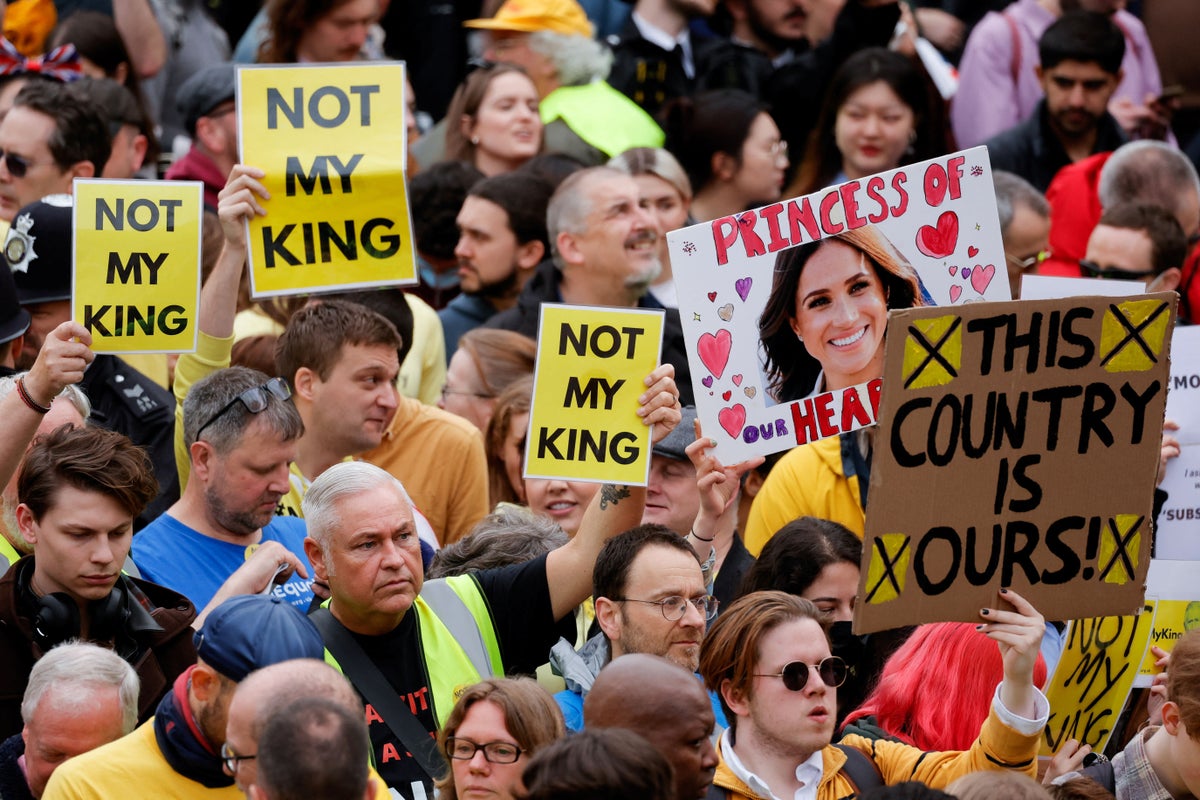
The chief of the Metropolitan Police has defended the force’s coronation arrests and claimed crowds actually cheered the crackdown.
Sir Mark Rowley said it was “unfortunate” the demonstrators were unable to join fellow activists on Saturday following their detention.
The six were the first arrests to be made under the sweeping Public Order Act, under suspicion of going equipped to “lock-on” – a measure protesters use to make it harder for police to move them.
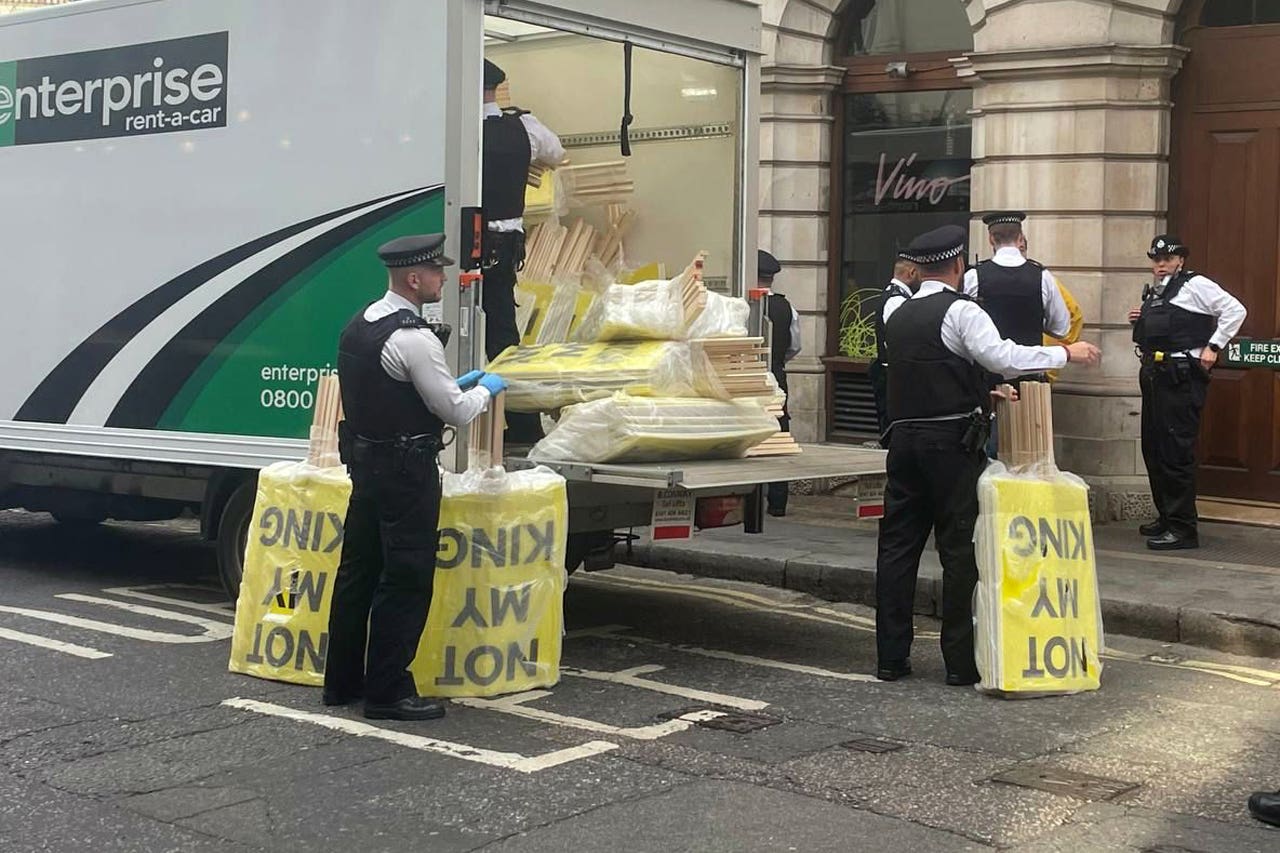
“While it is unfortunate that the six people affected by this were unable to join the hundreds of peaceful protesters, I support the officers’ actions in this unique fast-moving operational context,” Sir Mark wrote in the Evening Standard.
“Protest is an important right in any democracy, but it is limited and has to be carefully balanced alongside consideration for the rights of others so they too can go about their normal business – in this case participating in a once-in-a-generation event.”
“I can report that we found people in possession of possible lock-on devices and people that appeared to be purporting to be stewards of the event in possession of plastic bottles containing white paint, which we believe were specifically to be used to criminally disrupt the procession and resulted in arrests for going equipped to commit criminal damage,” he added.
He went on to say that crowds cheered as 17 protesters were arrested along The Mall before the start of the procession on Saturday morning.
Prime minister Rishi Sunak defended the new powers, which came into force last week, saying it was right for officers to have the power to tackle "serious disruption”.
And policing minister Chris Philp mounted a defence of the arrests, describing the coronation as a “once in a generation moment” during which officers had to make judgements in a “highly pressured situation”.
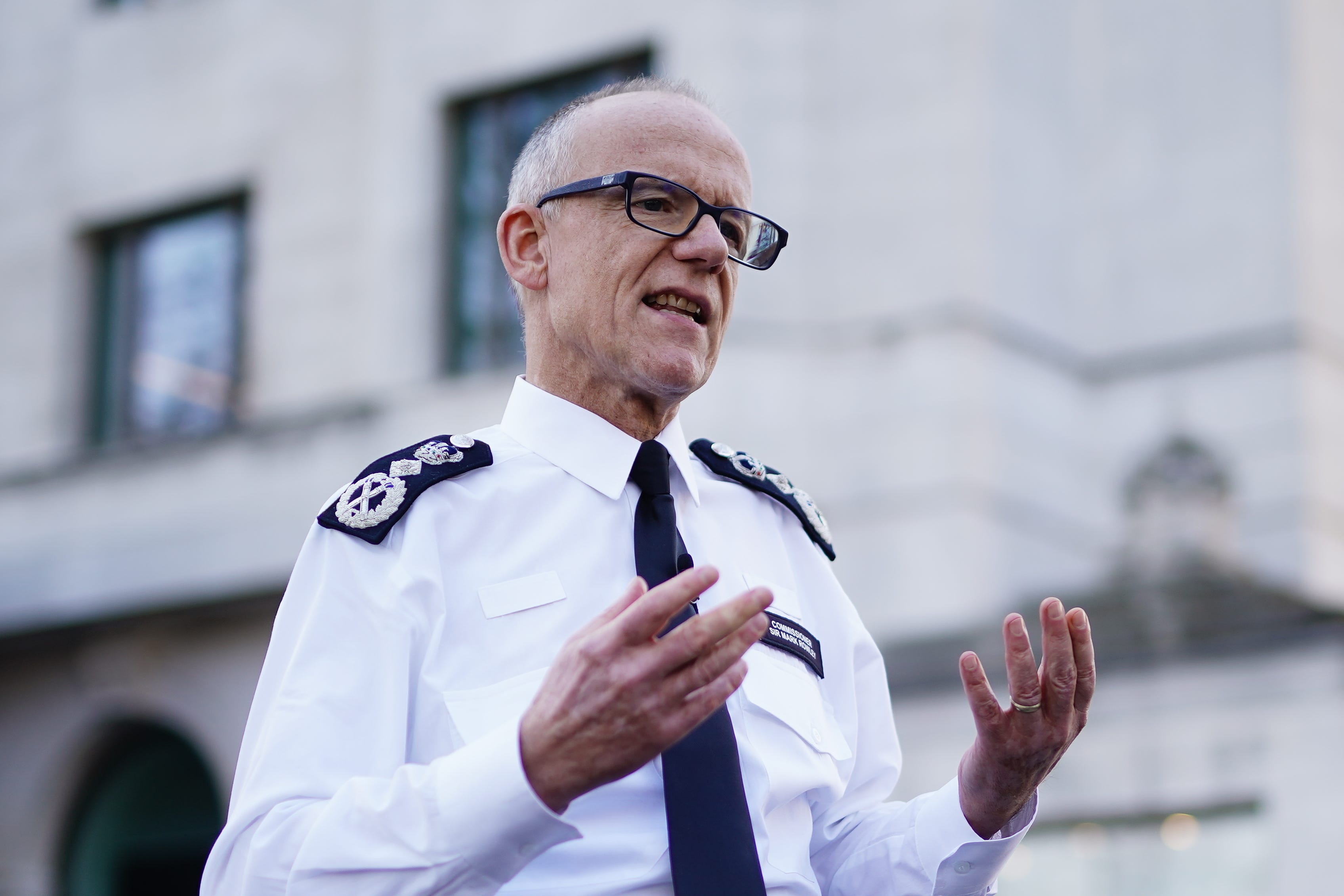
He came under fire over the arrests in the House of Commons, with one senior Tory blaming them on the government’s controversial Public Order Act.
Former minister David Davis said: “Within one week of the bill entering the law, and in its first serious use, we end up with the head of the Met having to apologise to people who were wrongfully arrested.”
Mr Davis, who was the only Conservative to vote against the bill, suggested Parliament’s home affairs committee would review it and come up with recommendations around how it should be applied. He previously described the legislation as “too crude” and “poorly defined”.
Another senior Tory, Sir Desmond Swayne, said the police did a “brilliant job” but added that there had been a “misunderstanding” leading to the six protestors’ arrests.
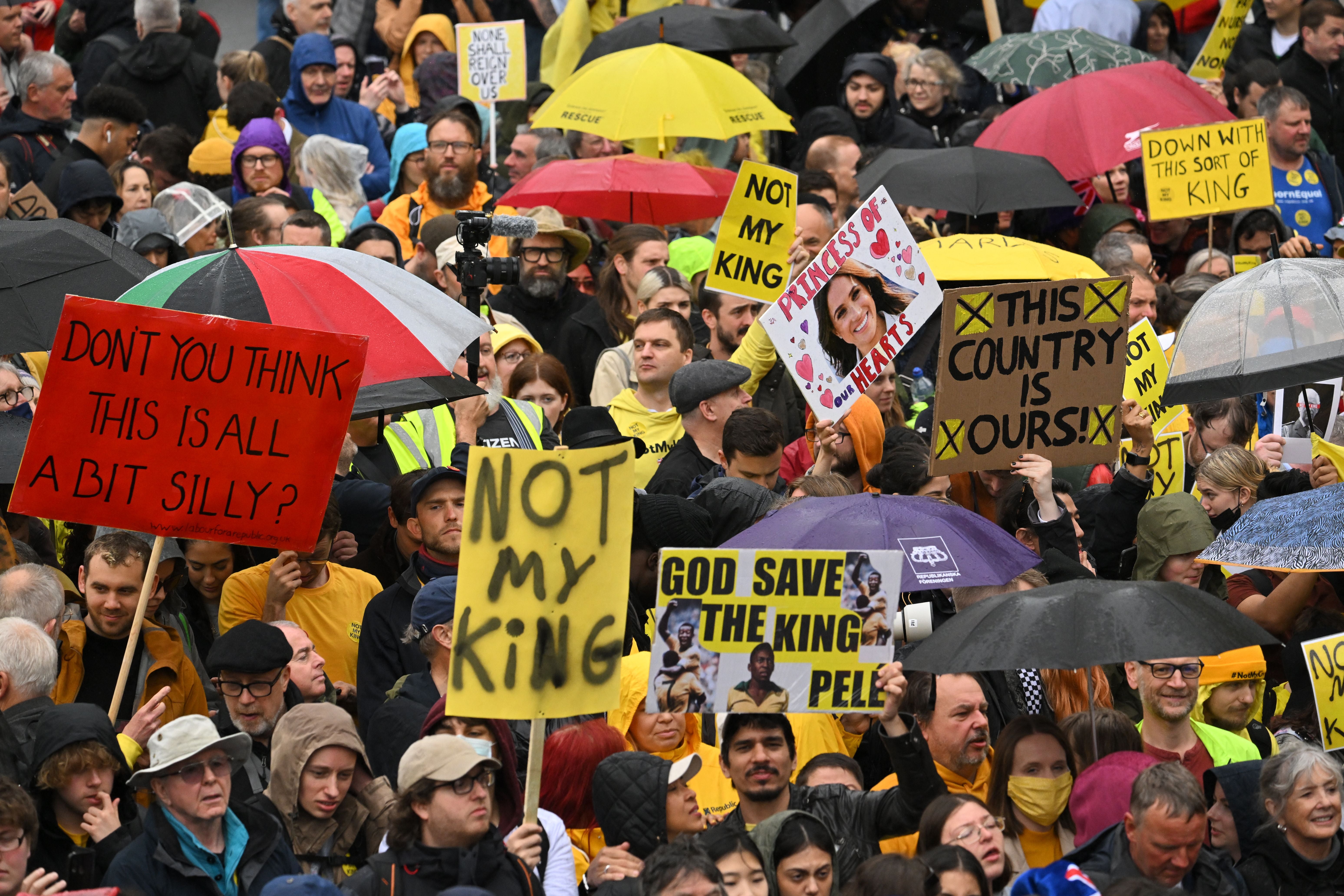
Sir Desmond said there were “questions to be asked” about why the protesters were “incarcerated” for 16 hours – saying the issue should have been resolved far more quickly.
Mr Philp told MPs: “At the weekend, officers had to make difficult judgements in fast time, in a highly pressured situation against a threatening intelligence picture.
“I thank the police for doing that, for delivering a successful coronation and for enabling safe, peaceful protest.”
And despite criticism from Mr Davis, and calls to do so from other opposition parties, Labour refused to commit to scrapping the bill in government.
Leader Sir Keir Starmer said he is not preparing to rip up the new police powers, adding that it was “early days” for the Public Order Act.
Rather than committing to repeal the legislation, he suggested fresh guidance could make improvements amid concerns it was being used to clamp down on dissent.
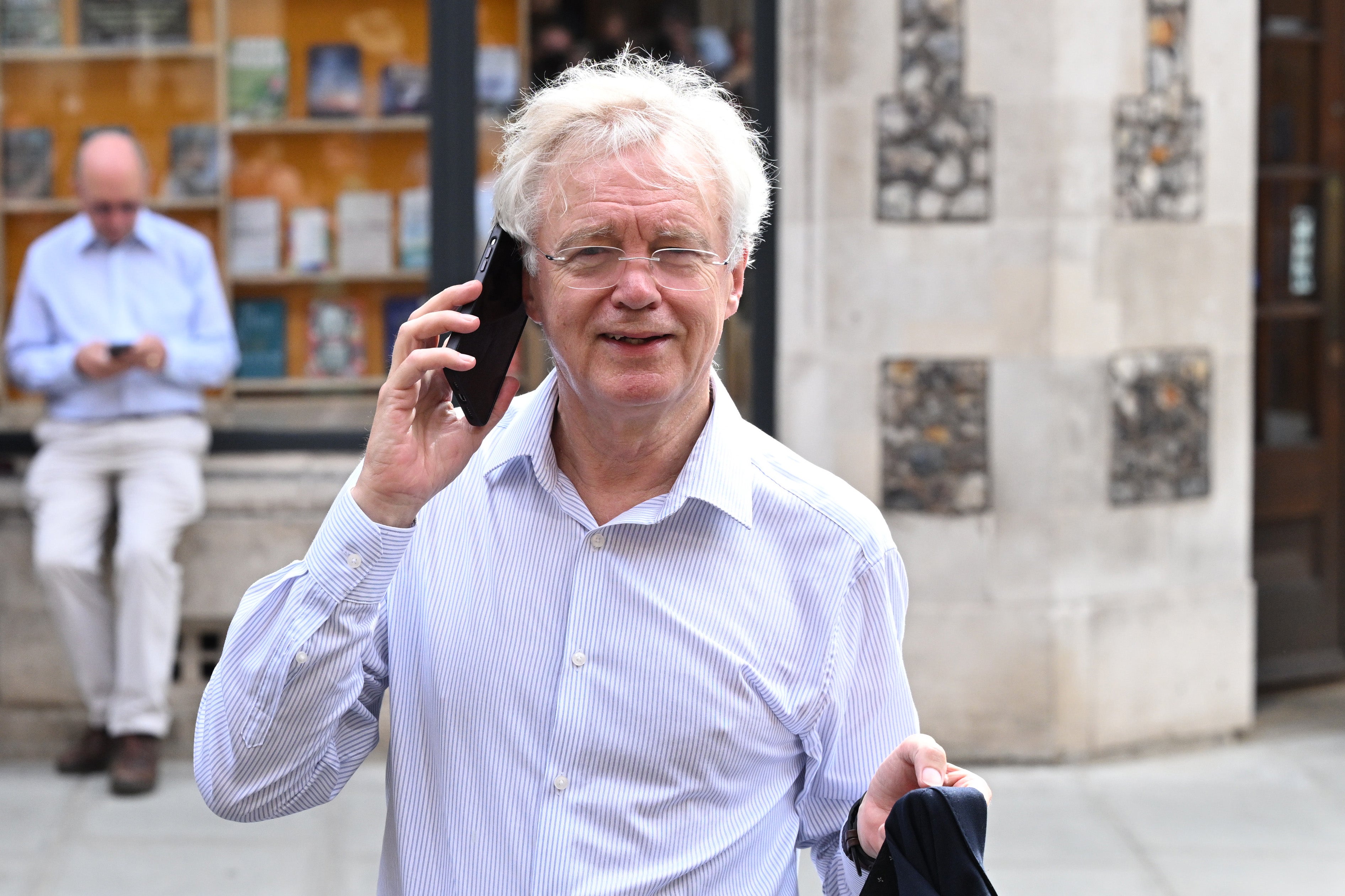
Sir Keir accepted that Scotland Yard got some of their “judgements wrong” during the coronation. But he said the Public Order Act should be given time “to bed in”.
Mayor of London Sadiq Khan has urged Sir Mark to conduct a review into some of the arrests made during the policing of the coronation.
In a letter to the commissioner, Mr Khan wrote: “Despite the welcome efforts of so many committed officers, it is clear that some of the arrests made have given rise to concerns and, in my oversight role as Mayor, I am seeking assurance from you that the issues related to these will be subject to a review and lessons learned.”
On Monday, Scotland Yard expressed regret that the six people arrested ahead of the King’s coronation were unable to join fellow anti-monarchy protesters. The Metropolitan Police were threatened with legal action when no charges were brought.
Republic chief executive Graham Smith said a chief inspector and two other Metropolitan Police officers personally apologised to him over what he called a “disgraceful episode” after they visited him on Monday evening.
The Metropolitan Police issued a lengthy defence as it confirmed Mr Smith and five others have been told they face no further action after being arrested on Saturday and bailed.
The force said it had arrested the group using new powers under the much-criticised Public Order Act after it was believed items found alongside a large number of placards could be used as “lock-on devices” to cause disruption.
“Those arrested stated the items would be used to secure their placards, and the investigation has been unable to prove intent to use them to lock on and disrupt the event,” the statement said.
“This evening, all six have had their bail cancelled and no further action will be taken.
“We regret that those six people arrested were unable to join the wider group of protesters in Trafalgar Square and elsewhere on the procession route.”







